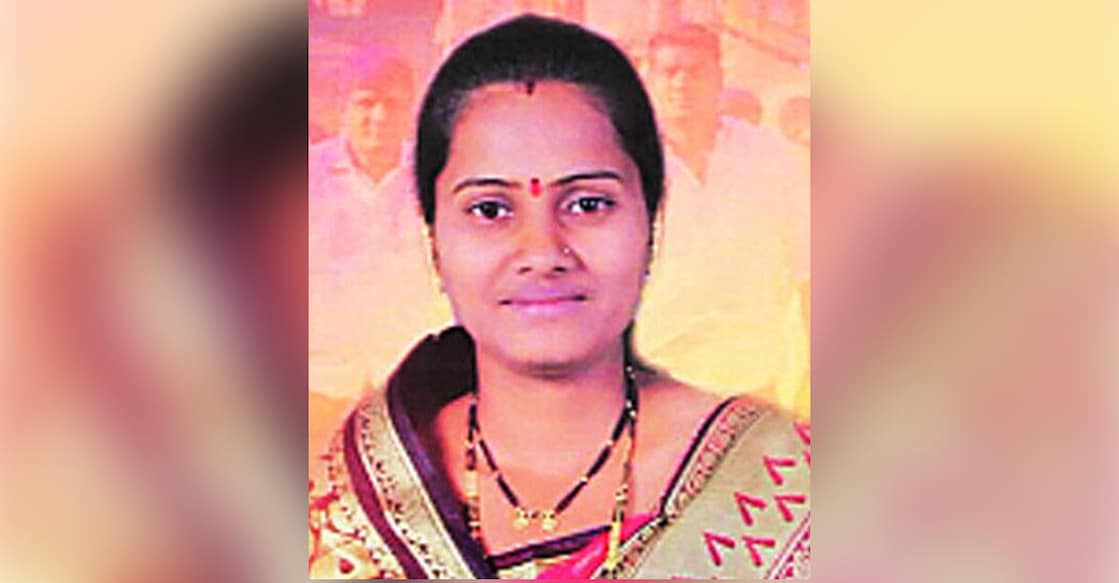Fighting superstition: Lady sarpanch shows the way in Maharashtra

Mail This Article
The recent election of a lady sarpanch in a remote village nestled in the Sahyadri hills has caught unusual media attention in Maharashtra, which was a pioneer in proposing 33 per cent reservation for women in the Legislative Assembly and has 50 per cent quota for women in local bodies.
Maharashtra has a total of 27,920 gram panchayats, almost 50 per cent of which went to polls last month and elected their heads recently.
But what seems to have set Sheetal Vishwas Rajpure apart is her courage to step in where even men possibly dare not. As reported by the local media, her village Rajpuri, located in the vicinity of the popular twin hill stations of Mahabaleshwar-Panchgani, about 235 km from Mumbai, had witnessed four sarpanches die even before completing their tenure, instilling such fear among the villagers that no one dared to aspire for the otherwise coveted post during the past 20 years.
Apparently, it was the youth of the village who took the lead and pursued Sheetal to become the sarpanch. Shankar Ananda Rajpure, a young man who was elected the deputy sarpanch, took it upon himself to convince the villagers unlike his predecessors who preferred to wield the power in the absence of a village head. Shankar though, along with other youth, felt it was important to end the fear caused by a superstitious belief.
Hearing of her unopposed election, Dr Hamid Dabholkar, an anti-superstition activist and son of Dr Narendra Dabholkar, founder of Maharashtra Andhashraddha Nirmoolan Samiti (MANS), travelled to Rajpuri and congratulated Sheetal.
Rajpuri is a village of 1,000-odd residents of which 70 per cent are literates having had access to the educational facilities at Panchgani, which lies eight kilometres away. The village is famous for its strawberry cultivation as also old temples and caves, one of which is said to have been the abode of Kartikswami, son of Lord Mahadev. Its residents also identify with Gadge Maharaj, the nineteenth century saint and social reformer who strived to eliminate illiteracy, superstitions and unsanitary conditions.
And yet, superstitions came to grip the residents of Rajpuri after the deaths of Satvasheela Rajpure, Ashok Rajpure, Kisan Rajpure and Ramchandra Rajpure who were elected sarpanches. Former deputy sarpanch Ajay Shankar Rajpure conceded that some misconceptions came to exist due to what happened to the past village heads who were in their forties or fifties, but he was confident things would turn out well in future.
The educated youth of the village had taken matters into their hands after successfully countering the fears among the elders by pointing out the fact that the deaths were all due to natural causes. Village elder Vilas Shankar Rajpure hoped they would not face social stigma as a result of what had happened in the past. He like many of his fellow villagers was worried since Maharashtra had an anti-superstitions law in place.
The Maharashtra Prevention and Eradication of Human Sacrifice and other Inhuman, Evil and Aghori Practices and Black Magic Act, 2013 is a special law enacted by the state's Legislative Assembly that criminalises any practices that may exploit people's blind faith or superstitions, especially acts like black magic, human sacrifices, use of magic remedies to cure ailments and so on.
Karnataka is the only other state in India to have passed a similar law in 2017.
However, the implementation of the law has been tardy and activists have often criticised successive Maharashtra governments of watering down the provisions to suit the demands by conservative lobbies, including various sects, temple trusts and Hindutva organizations.
The original law enacted by Maharashtra government had a provision of stringent punishment if someone was found guilty of practices that could cause harm to self or others. But the provision for punishment for several acts such as performing rituals like killing animals before an idol were removed from the original act after strong opposition from organizations like Sanatan Sanstha, which alleged that the law was mainly against the rituals in Sanatan Dharma.
Last year though, the Maharashtra Vikas Aghadi (MVA) government in its maiden budget allocated Rs 10 crore every year for the effective implementation of the anti-superstition law.
It also announced the formation of a committee under Social Justice Minister Dhananjay Munde with anti-superstition activist Shyam Manav as co-chair, to oversee the effective implementation of the law.
Munde had said that the state level committee will strive to work towards developing scientific temper among the people as well as abolishing inhuman practices prevalent in the society. The committee had planned to organise public rallies, training sessions by anti-superstitions activists, lawyers and police officers. It was also expected to try to set up anti-superstition committees in every college and conduct workshops for students and teachers. The aim is to nurture a confident and science oriented generation.
However, the still raging COVID-19 pandemic put paid to the committee's efforts in the past year and the financial provision remained only on paper, the social justice minister admitted.
The latest development in a remote village like Rajpuri was a welcome signal for the state's rulers to renew their commitment to the cause.


